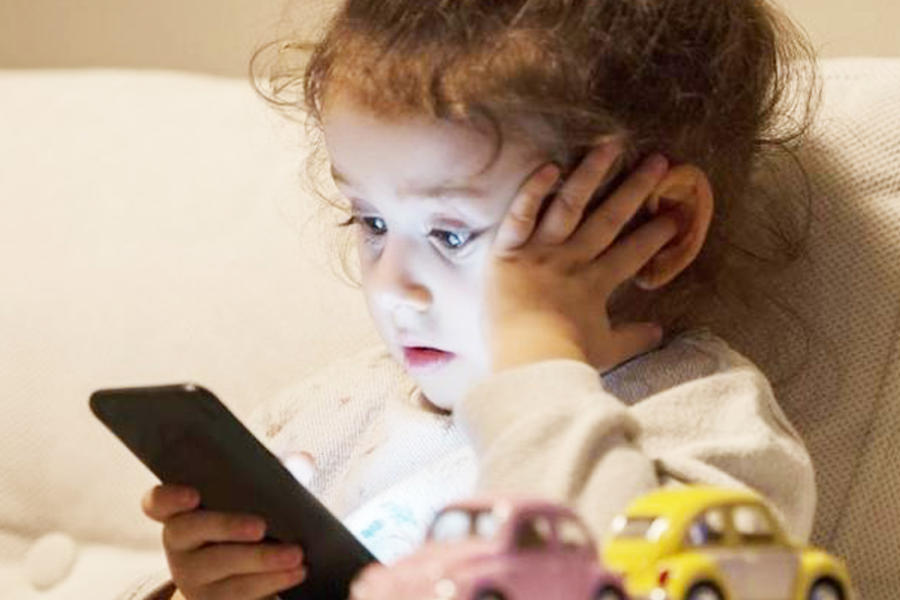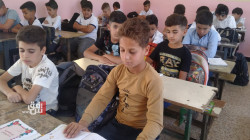Iraqi experts raise concern over children's addiction to screens

Shafaq News/ Smartphones are a source of entertainment and social communication for children. Still, spending a lot of time using them has prompted many professionals and parents to raise concerns about the dangers of this potentially risky behavior.
Cyberspace
Abu Ali from Basra and um Russul from Karbala spoke to Shafaq News Agency's correspondent about the importance of parents monitoring their children to know how they deal with cyberspace.
Um Russul is the mother of two nine and twelve years old girls. She explained that she "had to buy smartphones for her daughters because she was busy at work because I was afraid of letting them out into the street and exposing them to unwanted situations."
Technological Awareness
Many parents wonder when it is appropriate for their children to have their own mobile phones. Jerry Bubrick, a clinical psychologist and anxiety expert at the Child Mind Institute, says, "it is not so much about a specific age as it is about a child's social awareness and understanding of what technology means."
"You can have a 15-year-old child who is socially immature, but you get him a phone because he is 15 years old. On the other hand, a socially mature 12-year-old child may be able to handle it better."
controlled access
Experts often warn against excessive exposure and its negative impact on the child's psychological and social development. For this reason, they always call for controlled and supervised access to screen tools.
Dr. Farah Ghanem, a social researcher, advised Iraqi families, particularly mothers, to "pay attention to their children and keep smartphones, tablets, laptops, and other devices away from them, as they cause social, psychological, and health issues for them."
Operant Conditioning
In an interview with Shafaq News, Ghanem emphasized the importance of paying attention to the dangers of using smartphones, especially as the school year begins, calling for "the adoption of the Operant Conditioning method, meaning that the child who completes his homework gets to use his phone or play with it."
However, Ghanem believes that "engaging the child in educational and family duties, practicing social and sports activities, and limiting the use of technology to education only" is the best approach.
Moreover, specialists advise setting screen time for the child in order to avoid distracting them from studies or duties and prevent them from developing an addiction.
Risks
According to a British study, one of the risks of smartphones is that excessive use leads to sleep deprivation, and every hour spent behind the screen results in a loss of 16 minutes of sleep.
Autism, school delay, and misbehavior are among the unwanted consequences of children's abuse of smart devices and social media, according to social researcher Shahrazad al-Abdali, who emphasized the importance of "encouraging the child to rely on books more than the phone."
Delayed speech
According to a study conducted by researchers at a Canadian Children's Hospital, children who spend long periods on phones have speaking difficulties compared to their colleagues who are not allowed to deal with such devices to the same extent.
The study included approximately 900 children aged six months to two years, and discovered that every 30 minutes a child spends using a smartphone increases the chances of suffering from speech problems by 49%.
Jenny Radisky, an assistant professor at the University of Michigan, commented on the study's findings that "it is advisable to prevent children under the age of one and a half years from dealing with any electronic and smart devices," urging "parents to get closer to their children at this age stage."
According to the American Times magazine, studies have shown that children at this age cannot differentiate between the two-dimensional world they see on media screens and the three-dimensional world that surrounds them.
Poor eyesight
Other negative effects of children's smartphone use include "low vision, distraction, and addiction to the use of electronics, which causes difficulty in their coexistence with reality," according to Ansam Salman, the head of the Aison Organization for Human Rights and Sustainable Development.
On the benefits of smartphones, Salman said that "it improves children's English language, and satisfies their curiosity towards technology."
"This is only warranted for children older than ten years and for a limited time; two to three hours a day). Of course, it should not tamper with their academic progress and be supervised by the parents."





